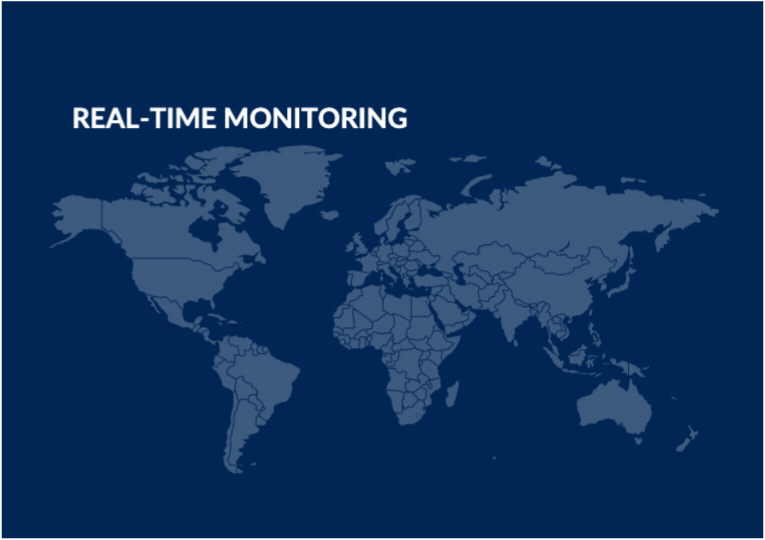Merchant monitoring
Merchant Monitoring Service Provider
Owlin’s merchant monitoring service reduces chargeback risks, improves capital efficiency, and helps payment providers manage global portfolios by monitoring adverse media across languages and geographies. Are you ready to monitor your portfolio across languages and geographies and reduce chargeback risk and improve capital efficiency?
We can track any entity with an online footprint, ensuring you stay informed about your third-party relationships.
How can we help you

Capture early warnings
Owlin’s Payments & Merchant Monitoring streamlines workflows and delivers early warnings on financial and non-financial risks. Stay ahead of bankruptcy signals, fraud, and operational issues, enabling timely, proactive action.

Private company coverage
Owlin’s versatile news and language coverage oversees both public and private entities, ranging from leading e-commerce players to mid-market companies in developing markets, making sure you don’t miss critical signals.

Responsible & Compliant
Having worked with some of the industry’s pioneers, Owlin’s offering boosts risk management capabilities, supports credit, compliance, and operational risk frameworks, and helps PSPs adhere to regulatory requirements effectively.
Frequently Asked Questions About Merchant Monitoring
Why do Payment Service Providers use Owlin for merchant monitoring?
There are two main reasons for Payment Service Providers (PSPs) to monitor their merchants. Firstly, they must comply with anti-money laundering and counter-terrorist financing (AML/CFT) regulations like PSD2 in the EU. This monitoring goes beyond just preventing fraud; it is a duty to assess, detect, and prevent any risks associated with payments and account access. This involves transaction and risk monitoring to ensure that all relevant regulations are followed and that the payment service provider is not exposed to undue risks.
Secondly, Payment service providers (PSPs) must monitor merchants to mitigate the risk of their merchant portfolio. This is especially critical in the underwriting process, in which PSPs accept liability and guarantee payment in the event of fraud. In addition, the PSP is responsible for refunding customers with outstanding orders or payments if a merchant goes bankrupt. Therefore, PSPS must monitor merchants for any signs of financial distress or other red flags that may lead to a merchant defaulting on their payments. Owlin can also help to detect leading risk signals from alternative data sources, such as customer reviews, to de-risk ahead of an adverse event occurring.
What challenges do Payment Service Providers face when monitoring merchants?
Payment service providers (PSPs) face a number of challenges when it comes to monitoring merchants. This includes monitoring large, diverse portfolios and not always knowing where to look for signs of financial distress or fraudulent activity. Additionally, PSPs must be able to access and read all the necessary information about their merchants, including any bankruptcies or other red flags. It can be especially difficult when the information is written in a foreign language. Furthermore, a lot of this information is not easily accessible, and labor-intensive retrieval from non-standard media can be required to find it. These factors can make it difficult for PSPs to monitor their merchant portfolios effectively, but it is an essential part of their due diligence process.
What types of merchant risk do Payment Service Providers need to look out for?
Merchant risk can take many forms:
Merchant Bankruptcy Risk occurs when a merchant cannot repay debts due to bankruptcy.
Excessive Chargeback Risk is a type of risk that occurs when a credit card provider demands that the merchant covers the loss on a fraudulent or disputed transaction.
Collusive/Fraudulent Risk occurs when a merchant commits fraud using its customers’ (cardholder) accounts and/or personal information.
Money Laundering/Counter-Terrorism Financing Risk occurs when a merchant processes suspect/ non-vetted transactions on behalf of another business.
How can Payment Service Providers use adverse media to monitor their merchants?
Payment Service Providers can use adverse media signals to monitor their merchants’ performance. These signals include indicators such as financial distress, regulatory investigations, and layoffs or downsizing, all of which can be used to identify potential issues with a merchant. By being aware of these signals, PSPs can help ensure they are not exposed to undue risk and can take the necessary steps to protect themselves.
How can Payment Service Providers use customer reviews to monitor their merchants?
Payment Service Providers can use customer reviews to monitor their merchants’ performance. Negative product or service reviews, order fulfillment delays, disputed transactions, and complaints about a merchant’s business practices indicate a potential problem. By keeping an eye on customer reviews, PSPs can help ensure they are not exposed to undue risk and can take the necessary steps to protect their finances.
How can Owlin help Payment Service Providers monitor adverse media?
The Owlin platform covers over 3 million sources in 17 languages and leverages AI (NLP) technology to present relevant signals in graphs and alerts. Owlins’ algorithms can keep PSPs informed on even the most niche topics in near real-time, which helps merchant risk managers focus on what’s truly important.
Is it possible to enrich the sources Owlin uses with alternative data, such as customer reviews?
Yes, the Owlin platform can check for risk signals in any written data. Therefore, it is possible to enrich the sources used with customer reviews.
Want to see Owlin in action?
Learn more about our solutions and see how we can help your business.
We look forward to meeting you.













